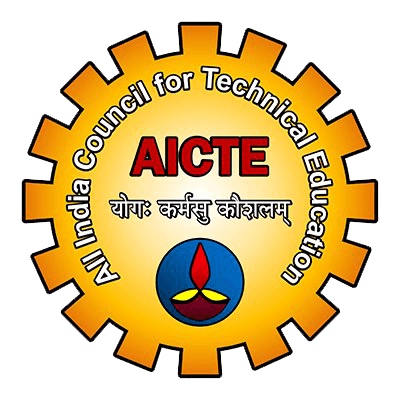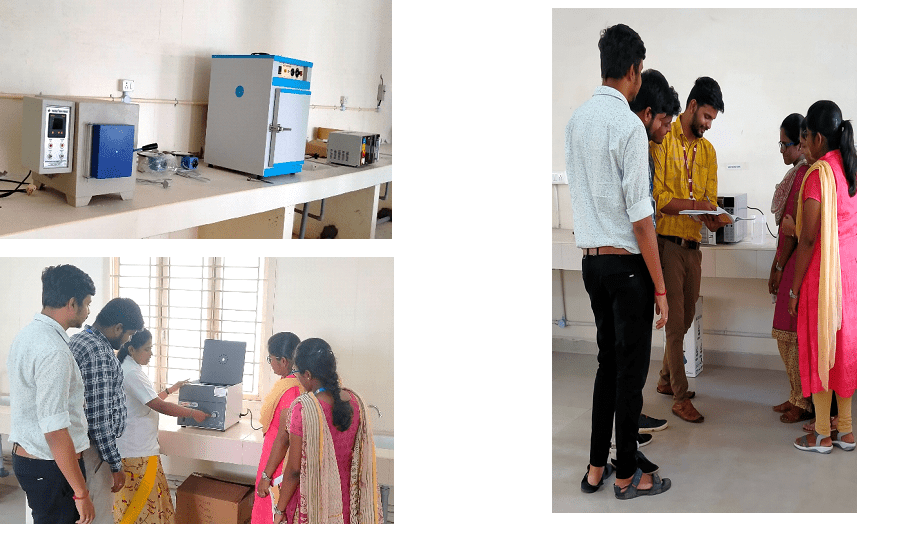


This lab is equipped with design and unit operation systems for processing of biological materials to develop products for the food industries and prepare for future challenges and opportunities in food sector.
Fluid Mechanics Laboratory
Fluid mechanics laboratory is important in the chemical engineering curriculum, since in any process industry, storage, handling, and transportation of fluids play a vital role. Chemical engineers are concerned with transportation of fluids (both liquids and gases) from one location to another through pipes or ducts. This activity requires determination of the pressure drop, friction factor through the system and consequently of the power required for pumping, selection of suitable type of pumping device and measurement of the flow rates.
Instrumental Methods of Analysis Laboratory
This lab is designed to complement principles of analytical instrumentation and provide a practical introduction and experience in the use of modern analytical instrumentation. Emphasis will be placed on sample preparation, instrumental operation/methods, and data interpretation for a range of pharmaceutical, biological, environmental, and industrial samples.
Fruits Vegetable Processing and Packaging Laboratory
The main objective of lab is to provide a basic knowledge on extraction, pulping, dehydration and prepare value added fruits and vegetable-based products. The lab is equipped with freeze dryer, vacuum oven and vacuum packaging machines which enhance the research practices.
Food Analysis Laboratory
The main objective of the food analysis laboratory is to conduct analysis of different agricultural commodity, food products and contaminants. It aims to characterize food products in terms of chemical composition, traceability, safety, quality, sensory perception and nutritional value.
Testing of Packaging Materials Laboratory
The packaging laboratory aims to identify and use appropriate packaging technologies for retaining the quality of cereal grains, fruits/vegetables, and processed foods, and investigates the methods to evaluate the properties of the packaging materials. It enhances the knowledge of students about various packaging materials, tests used to identify and evaluate these packaging materials.
Food Process Engineering Laboratory
Food process engineering laboratory focuses on developing new and innovative food processing technologies to enhance food quality, safety. It enhances the knowledge of clean process technology development and application of engineering principles integrated with food chemistry, microbiology and nutrition concepts.
Microbiology Laboratory
It is important for food technologist to acquaint with diversity of microorganisms and their similarities and differences to one another. Students will practice various techniques to isolate, culture, observe and identify microorganisms and to gain more knowledges with procedures used for specimen collection and the needful precautions for food preservation.
Food Chemistry Laboratory
This lab facilitates the students to know about the chemical processes and interactions of all biological and non-biological components of foods. It also encompasses how products change under certain food processing techniques and ways either to enhance or to prevent them from happening.
Heat and Mass Transfer Laboratory
The lab provides practical knowledge on three basic modes of heat transfer and their applications in industrial heat transfer operations. Experiments help the students to gain practical experience on various heating/cooling mechanisms to understand the principles of thermo-fluid/solid sciences. It facilitates the students to understand the fundamental concepts of interphase mass transfer. Experimental studies equip the students with the necessary input for the design/operation of complex equipment for mass transfer operations like absorption, distillation, crystallization, extraction etc. The lab also extends facilities for conducting ug projects.
Dairy Engineering Laboratory
Dairy engineering laboratory aims to familiarize the students in necessary technical input in the areas of milk preservation, product/ process awareness and improvement, technologies for development of Indian dairy products, product quality assessment and design and development of dairy equipment.
Baking and Confectionery Laboratory
The main intention of the baking and confectionery laboratory is to furnish the basic principles intricated in diverse mechanisms of processing, preservation and quality control techniques in bakery and confectionery products.
LIST OFEQUIPMENTS:
| S.No. | Equipment |
| 1 | Microscope |
| 2 | Centrifuge |
| 3 | Shaker |
| 4 | Water bath |
| 5 | Heating mantle |
| 6 | Muffle furnace |
| 7 | Spectrophotometer |
| 8 | Microwave oven |
| 9 | Fermenter |
| 10 | Autoclave |
| 11 | Hot air oven |
| 12 | Electric beater |
| 13 | Crown capping corking machine |
| 14 | Colour comparator |
| 15 | Fume hood apparatus |
| 16 | Dean and stark apparatus |
| 17 | Simple distillation unit |
| 18 | Metal can sealer machine |
| 19 | Tray dryer |
| 20 | Fluidized bed dryer |
| 21 | Sedimentation cylinder |
| 22 | Blender |
| 23 | Compression press |
| 24 | Juice extractor |
| 25 | Pulper |
| 26 | Peeler |
| 27 | Sedimentation cylinder |
| 28 | Deck oven |
| 29 | Dough mix |
| 30 | Fermentation cabinet |
| 31 | Digital photocalorimeter |
| 32 | Soxhlet apparatus |
| 33 | Polarimeter |
| 34 | Milk lactometer |
| 35 | Milk tester |
| 36 | Butyrometer |
| 37 | Deep freezer |
| 38 | Blast freezer |
| 39 | Kjeldal apparatus |
| 40 | Homogenizer |
| 41 | Viscometer |
| 42 | Vortex mixer |
| 43 | Pycnometer |
| 44 | Refractometer |
| 45 | pH meter |
| 46 | Moisture analyser |
| 47 | Stadiometer |
| 48 | Lovibond comparator disc |